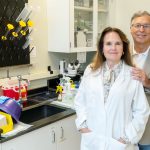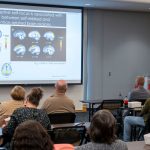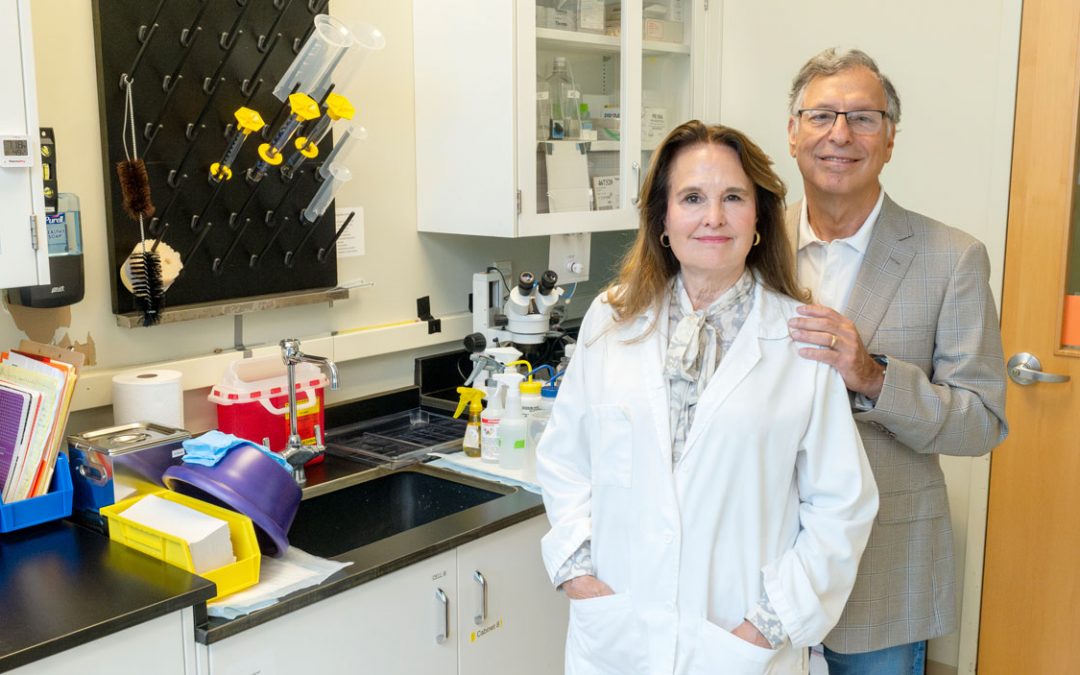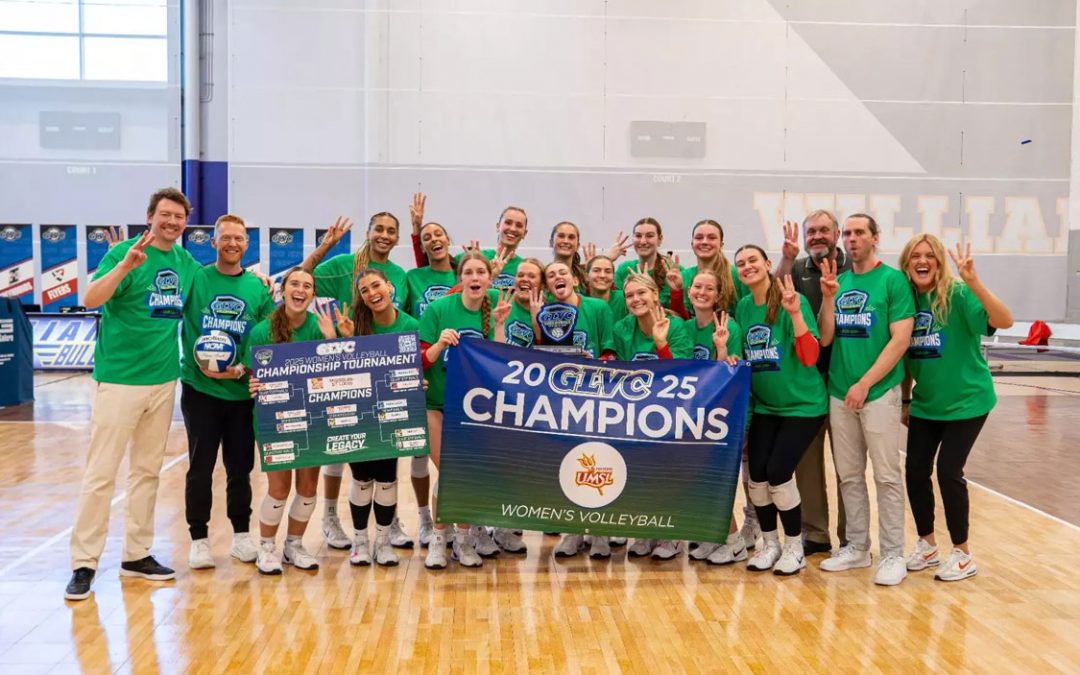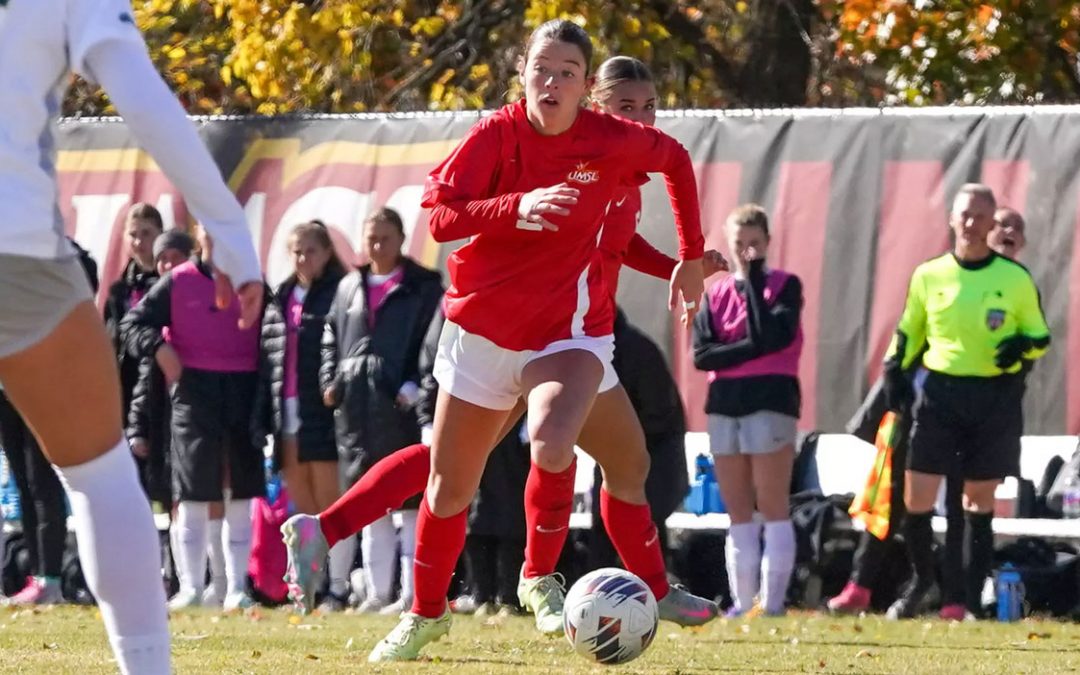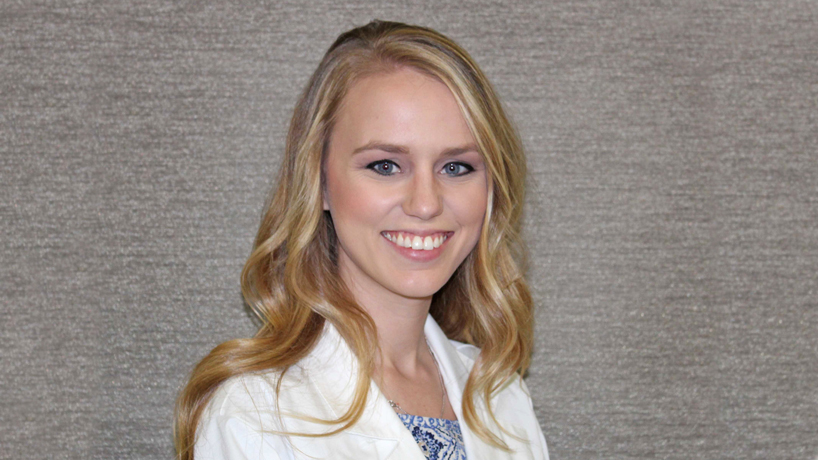
Devon Schatz-Schlottach’s doctor of nursing practice research focused on teaching nurse practitioners how to perform an exam via telehealth. Now a medical provider in Sullivan, Missouri, Schatz-Schlottach sees firsthand how telehealth can increase rural patients’ access to high-quality health care. (Photo courtesy of Devon Schatz-Schlottach)
With the novel coronavirus pandemic creating challenges for hospitals and medical clinics, many patients are experiencing difficulty making or attending appointments.
For residents of rural Missouri, barriers to high-quality health care are nothing new. Seeing a provider is often complicated. There’s usually a long wait between scheduling and the appointment. Then there’s the long drive to a medical facility, which requires taking time off work.
Devon Schatz-Schlottach is determined to help change that.
The Sullivan, Missouri, native graduated from the University of Missouri–St. Louis College of Nursing in August 2019 with a doctor of nursing practice degree. Through her work at a health clinic and long-term care facilities near Sullivan, she sees firsthand the challenges rural patients face.
“I am learning new things every day about the rural population, particularly the different generations throughout rural areas,” she said. “For them, achieving a healthy lifestyle takes a grand effort.”
Much of the issue stems from limited resources. Access to a gym and healthy food is not readily available, which affects overall wellness.
Telehealth offers a viable solution to increase access to health care in rural areas by using technology such as emails, phone calls and videoconferencing to see and treat patients.
“Telehealth delivers optimal health outcomes in a more timely, efficient manner,” Schatz-Schlottach said. “It’s the future of health care and it’s essential for nurse practitioners to be leaders on this front.”
The use of electronic means to treat patients is becoming more prevalent around the United States, particularly as providers reduce face-to-face visits to help slow the spread of COVID-19. Providers regularly consult each other remotely, and remote patient appointments are increasingly common. This is especially true in psychiatry due to limited providers for a large number of patients.
In rural areas, telehealth means no travel, shorter wait times for appointments and less time off work.
These benefits inspired Schatz-Schlottach’s doctoral research, specifically teaching nurse practitioners how to perform a physical exam without touching a patient. She was supported by mentors from the College of Nursing, including Laura Kuensting, Lisa Merritt, Allison Brauch and Natalie Murphy.
Schatz-Schlottach’s research was recognized with the Shirley A. Martin Distinguished Nurse Award.
“I was truly passionate about this, and I believe my work reflected my love for rural health,” she said. “It was easy to put in the work and effort on something that I care so deeply about. Being awarded the Shirley A. Martin Award affirmed my dedication to rural health and improving health outcomes in rural communities.”
As her nurse practitioner position allows her to care for patients from birth to 100 in outpatient clinics and takes her to nursing homes throughout the region, Schatz-Schlottach remains motivated by finding treatments that work for individual patients. Her passion for telehealth continues to grow.
“The COVID pandemic has allowed me to put my project into practice as I used telehealth for the first time as a provider,” she said. “Now, providers across the U.S. are using telehealth consistently, and I believe education on telehealth practice and telehealth etiquette is even more essential than ever. I am devastated by the pandemic, but it was fulfilling to use telehealth for the first time and really understand the depth of the importance of my project.”


